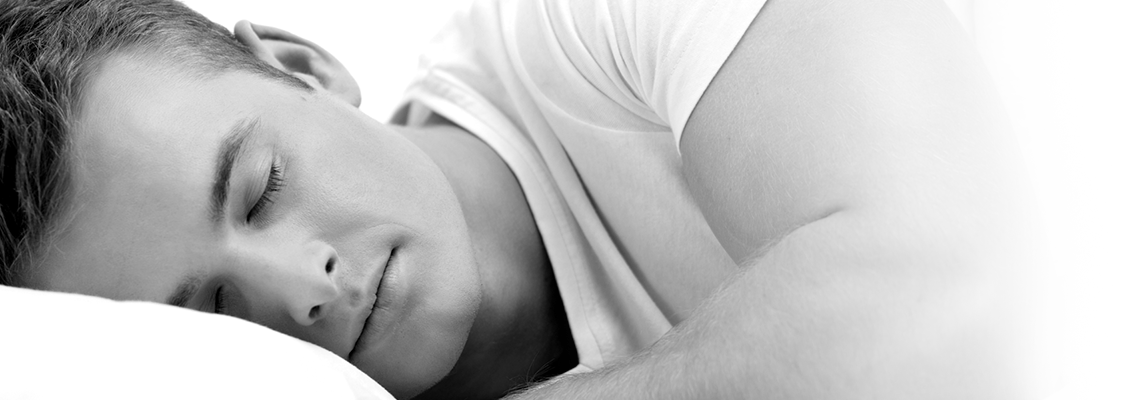
Snoring & Sleep Apnea Treatments
Sleep disorders are a bigger problem than most people think. Disorders like sleep apnea disrupt more than just a good night’s sleep and hard day’s work. Over time, it’s a risk factor for heart attack, stroke, diabetes and other serious conditions.
Dr. Tracy L Davidian, DDS, DABCP is one of the top dental sleep medicine doctors in the Triangle area. Read more to find out how you can get high quality, comfortable, and custom treatment for you or a loved one’s sleep disorders.
What is Sleep Apnea?
Approximately 25 million adults in the U.S. have obstructive sleep apnea (OSA), which can cause them to stop breathing hundreds of times a night for anywhere from a few seconds to more than a minute.
People with sleep apnea usually do not remember waking up during the night. Indications of the problem may include:
- Morning headaches
- Excessive daytime sleepiness
- Irritability and impaired mental or emotional functioning
- Excessive snoring, choking, or gasping during sleep
- Insomnia
- Awakening with a dry mouth or sore throat
Risks of Untreated Sleep Apnea
People suffering with sleep apnea often feel sleepy during the day, thus finding it hard to focus on everyday tasks such as: driving, work, school, reading, watching television, etc.
In more serious cases the lack of oxygen can lead to:
- High blood pressure
- Heart attacks
- Weight gain
- Diabetes
- Strokes
- Sudden death
Is it Sleep Apnea?
How do you know if you or a loved one has sleep apnea? In most cases, a spouse or a friend is the first to suspect that someone they know may be suffering from sleep apnea.
Common signs of sleep apnea include snoring and gasping or choking sounds during sleep. Like snoring, sleep apnea is more common in men, but it can occur in women too, especially during and after menopause. Having excess body weight, a narrow airway or misaligned jaw all increase the risk of sleep apnea.
If you know someone whom you have noticed to have these symptoms, please encourage them to see a doctor for an evaluation.
What to Expect
When you schedule your sleep treatment with Dr. Davidian, you will be on your way to a better night’s sleep.
Here is what to expect along the way:
Initial Visit
During this initial visit, Dr. Davidian will thoroughly examine your teeth and mouth to confirm that you are a good candidate for a device. a bite registration and impression will be taken using a K-7 Evaluation System. The K-7 Evaluation System measures, displays and stores objective data on a physiologic and anatomical status and function: jaw tracking, electromyography and joint sonography. This objective data enhances the doctor’s diagnostic and treatment considerations with information not previously available.
Based on this data, Dr. Davidian will custom-order your device.
Delivery Visit
Dr. Davidian will place and fit your device. She will also teach you how to insert and remove the device, as well as general maintenance and care.
Calibration Visit
During these visits, Dr. Davidian will monitor the position of the device and follow up on your sleep apnea.
Dr. Davidian’s Approach
Dr. Davidian uses state-of-the-art technology to treat your sleep apnea. Physiologic Aesthetics put a patient’s physiology into the equation. Dr Davidian, a Fellow in Neuromuscular Dentistry, uses a K-7 Evaluation system in order to capture a positive physiologic position of a patient’s lower jaw. This position is then transferred to the patient’s night appliance.
The Physiologic Night Appliance is worn during sleep to move the lower jaw forward, thus keeping the airway open and allowing for normal breathing.
Dr. Davidian customizes these devices to each patient, resulting in superior comfort and quality.
Oral Appliance Therapy
Oral appliance therapy is an effective treatment option for snoring and obstructive sleep apnea (OSA). A custom-fit oral sleep appliance can improve your sleep, restore your alertness and revitalize your health.
Worn only during sleep, an oral appliance fits like a sports mouth guard or an orthodontic retainer. It supports the jaw in a forward position to help maintain an open upper airway.
Research shows that oral appliance therapy is an effective treatment option for snoring and obstructive sleep apnea.
Benefits of Oral Appliance Therapy
Oral appliance therapy is an effective, non-invasive treatment that fits easily into your lifestyle. More than 100 oral appliances have received FDA clearance.
Our patients like oral appliance therapy because it is:
- Comfortable
- Easy to wear
- Quiet
- Portable
- Convenient for travel
- Easy to care for
While sleeping with TMD pain is possible, it can be uncomfortable and lead to loss of restful sleep. Contact a TMJ specialist for disordered sleep solutions.
Sleep apnea can actually increase strain on the lower jaw, which can result in TMD pain and headaches. For treatment options, contact a specialist.
Jaw misalignment and upper airway restriction, often causes of TMD pain, can exacerbate disordered sleep or sleep apnea. Contact a specialist for comprehensive help.
Specialized treatment for TMD pain, including custom orthotics and dental sleep apnea devices, can help reduce pain and improve sleep.
TMD issues can severely impact sleep, as ear ringing, pain, tense muscles and congestion can lead to sleep deprivation or insomnia. Specialized treatment for your TMD issues can lead to improved sleep.
